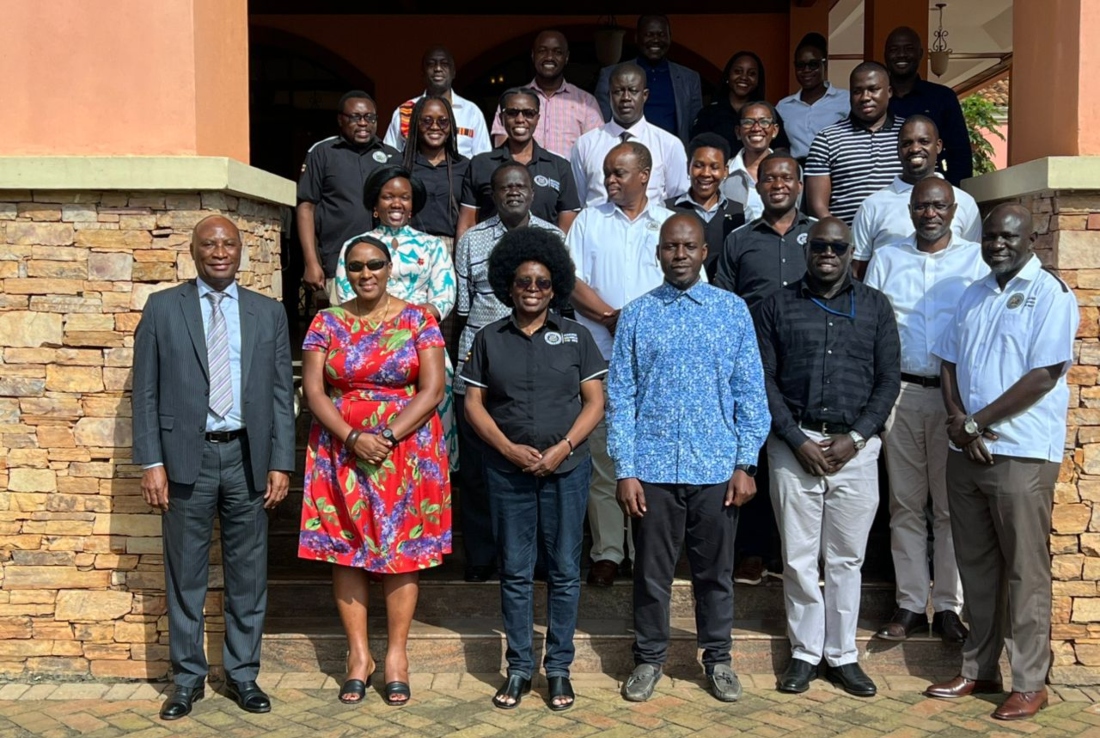On July 24th, 2024, Uganda confirmed its first case of Monkeypox (MPox) at Bwera Hospital in Kasese District. Since then, the country has seen the number of confirmed cases rise to 80. MPox, a viral disease causing painful rashes, fever, enlarged lymph nodes, and severe fatigue, is just the latest in a string of public health challenges Uganda has had to contend with in recent years.
From outbreaks of Ebola and malaria to the COVID-19 pandemic, the nation is no stranger to epidemics. This ongoing battle against infectious diseases has sparked a pressing question: how can Uganda effectively leverage science, technology, and innovation (STI) to build a pathogen-resilient economy and respond more proactively to future health threats?
This question took center stage at the inaugural Interdisciplinary Consortium for Epidemic Research (ICER) Symposium, a groundbreaking event that brought together thought leaders in academia, policy, and the innovation ecosystem to discuss the path forward. The symposium was a collaborative platform for scientists, policymakers, innovators, and health professionals from across East Africa to share insights, exchange research, and explore cross-border cooperation in the fight against health epidemics like MPox.
Epidemic Preparedness: A New Frontier for Innovation
Uganda’s encounter with MPox highlights the urgent need to rethink how the country prepares for and responds to epidemics, not just during an outbreak, but by building a pathogen-resilient economy that can predict, prevent, and mitigate the effects of such crises.
The ICER Symposium marked the first step toward fostering interdisciplinary collaboration, recognizing that innovation, particularly in science and technology, must be at the forefront of this effort.
In his opening remarks at the symposium, Dr. Jane Ruth Aceng, Minister of Health, emphasized the importance of transforming Uganda’s health sector into a robust and agile ecosystem capable of addressing both emerging and re-emerging diseases. “We need to prioritize investments in epidemic research and innovation,” Dr. Aceng stated. “Our country must capitalize on the intellectual capital within our borders and strengthen partnerships across the region to safeguard public health.”
Dr. Monica Musenero, Minister for Science, Technology, and Innovation, echoed these sentiments, emphasizing that the country’s approach to epidemic preparedness must be data-driven and rooted in cutting-edge scientific research. By building a strong foundation in research, supported by technological innovation, Uganda can move from reactive to proactive epidemic management” Musenero said.
In this context, the notion of a “pathogen economy” becomes an essential framework where science, innovation, and public health are integrated to drive economic and social resilience in the face of health crises.
Unlocking the Power of a Pathogen Economy
The pathogen economy refers to a strategic approach that harnesses the power of scientific research and technological innovation to tackle diseases, boost healthcare infrastructure, and create economic opportunities around disease prevention and control. For Uganda, building a pathogen economy would involve scaling up local research capabilities, improving healthcare infrastructure, and fostering public-private partnerships to develop homegrown solutions.
One of the key insights from the ICER Symposium was the need for more robust investment in local vaccine development and diagnostic tools. By localizing the production of medical supplies or local alternative remedies, Uganda can reduce its dependence on foreign imports and ensure that life-saving resources are available when they are needed most.
In 2020, the COVID-19 pandemic exposed the vulnerabilities of relying on international supply chains for essential medical products, and from this experience, Uganda learned the importance of building a resilient pathogen economy that facilitates rapid research and development geared toward responding to public health threats and epidemics.
Under the pathogen economy bureau, the STI secretariat has built frameworks consisting of scientific think tanks, researchers, and innovators to fast-track cutting-edge scientific research in the pathogen value chain and bi-products, particularly in epidemiology and infectious diseases such as vaccines, therapeutics, diagnostics, and related ICT interventions and equipment. By fostering closer collaboration between academic institutions, and the private and public sectors, Uganda can build a more cohesive deep technology ecosystem, where discoveries in the lab can be quickly transformed into practical solutions that address public health needs.
Importance of Cross-Border Cooperation: Regional Solutions for Regional Challenges
Health epidemics don’t respect borders. As Uganda has seen with the Ebola or COVID-19 outbreaks that periodically crossed over from neighboring countries, pathogens can easily move across national or international boundaries. This reality emphasizes the importance of regional cooperation in epidemic preparedness and response.
The ICER Symposium explored how Uganda, along with other East African nations, can strengthen cross-border collaboration in epidemic research and public health. Dr. Ahmed Ogwell Ouma, Acting Director of the Africa Centres for Disease Control and Prevention (Africa CDC), highlighted the need for a regional approach to disease surveillance, data sharing, and resource pooling. “Pathogens don’t stop at borders, and neither should our efforts to combat them,” Dr. Ouma remarked. “We need a coordinated East African response to epidemics, backed by the full force of our scientific and technological expertise.”
This emphasis on regionalism is critical not just for MPox but for all emerging infectious diseases. With East Africa’s growing integration through bodies like the East African Community (EAC), there is an opportunity to build a unified epidemic response framework that leverages the strengths of each country, whether it be Uganda’s research institutions, Kenya’s healthcare innovations, or Rwanda’s digital health infrastructure.
Learning from the Symposium: The Role of Science and Technology in Epidemic Response
At the heart of Uganda’s ability to confront epidemics like MPox lies its capacity to harness science and technology for public health. The symposium showcased several promising areas where innovation can make a difference.
- Data and Predictive Analytics: Uganda can leverage artificial intelligence (AI) and data analytics to model disease outbreaks and predict the spread of infections. These technologies can help health authorities prepare for and prevent future outbreaks by providing real-time information on potential hotspots and vulnerable populations.
- Telemedicine and Digital Health Platforms: The rapid adoption of digital health technologies during the COVID-19 pandemic offers a blueprint for how Uganda can enhance its healthcare delivery system. Telemedicine platforms can bridge the gap between healthcare providers and patients in remote areas, ensuring that even those in the most isolated, hard-to-reach communities can access care.
- Mobile Laboratories and Rapid Diagnostics: The ICER Symposium emphasized the importance of decentralizing epidemic response capabilities. Mobile laboratories equipped with advanced diagnostics can be deployed in hard-to-reach areas, enabling quicker identification of cases and more targeted interventions. These labs can also facilitate research, gathering valuable data on pathogen behavior and transmission in real time.
- Vaccine Innovation and Local Manufacturing: As the frequency of outbreaks rises, public health becomes a critical issue, hence the need to develop local vaccines for timely responses to health crises. Currently, the STI secretariat, in collaboration with the Ministry of Health, has created frameworks and facilities, such as the Uganda Virus Research Institute (UVRI), as the designated facility for SARS-Cov-2 and the national diagnostic reference center. These ongoing efforts to create local vaccine manufacturing capabilities are a step in the right direction, but more investment and international partnerships are needed to scale up these efforts.
Forging a Path Forward
In a nutshell, as Uganda faces the challenges posed by MPox and other infectious diseases, the need to invest in science, technology, and innovation has never been more urgent. The inaugural ICER Symposium represents a crucial step toward building a pathogen economy that not only addresses current health threats but also equips the country to handle future crises with resilience.
By fostering interdisciplinary collaboration, promoting regional cooperation, and scaling up local innovations, Uganda can build a health system that is proactive, responsive, and capable of safeguarding its population from the next epidemic. The path forward requires bold thinking, strategic partnerships, and a shared commitment to a healthier, more resilient future for all.







